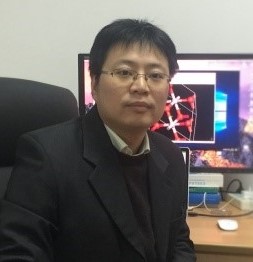2019 marks not only the centenary of IUPAC, but also the 20th year of the IUPAC-Solvay International Award for Young Chemists. The IUPAC-Solvay Award was established to encourage outstanding young research scientists at the beginning of their careers. Awards are given each year for the most outstanding Ph.D. theses in the general area of the chemical sciences. The Award has been generously sponsored by Solvay since 2014. We take this opportunity to reflect upon the influence of the IUPAC-Solvay award on the career trajectories of some early winners.
For more information on the Award, see: https://iupac.org/2020-iupac-solvay-international-award-for-young-chemists/.
Keywords: Chemical research, PhD thesis, Chemical education, IUPAC-Solvay


 Alberto Credi, professor at the Center for Light-activated Nanostructures (CLAN) at the University of Bologna, Italy, and an Awardee in 2000, commented on how winning the Award helped him gain independence as a scientist:
Alberto Credi, professor at the Center for Light-activated Nanostructures (CLAN) at the University of Bologna, Italy, and an Awardee in 2000, commented on how winning the Award helped him gain independence as a scientist: Michelle L. Coote, Professor at the Research School of Chemistry of the Australian National University, is now a Fellow of the Royal Society of Chemistry, a Fellow of the Royal Australian Chemical Institute, and a Fellow of the Australian Academy of Science, was an Awardee in 2001. She wrote about how winning the Award helped her career get off to a good start:
Michelle L. Coote, Professor at the Research School of Chemistry of the Australian National University, is now a Fellow of the Royal Society of Chemistry, a Fellow of the Royal Australian Chemical Institute, and a Fellow of the Australian Academy of Science, was an Awardee in 2001. She wrote about how winning the Award helped her career get off to a good start: Zhipan Liu, a 2004 Awardee and a professor in the Department of Chemistry in Fudan University in China, emphasized the effect the Award had on improving recognition and acceptance of the field of theoretical chemistry, in which he focuses his research:
Zhipan Liu, a 2004 Awardee and a professor in the Department of Chemistry in Fudan University in China, emphasized the effect the Award had on improving recognition and acceptance of the field of theoretical chemistry, in which he focuses his research: Ruben Costa, an Awardee in 2011, works in industry as Head of the Hybrid Optoelectronic Materials & Devices Lab of IMDEA Materiales in Madrid, Spain. He emphasized how winning the Award helped him start his postdoctoral career by recognizing his potential:
Ruben Costa, an Awardee in 2011, works in industry as Head of the Hybrid Optoelectronic Materials & Devices Lab of IMDEA Materiales in Madrid, Spain. He emphasized how winning the Award helped him start his postdoctoral career by recognizing his potential: Bozhi Tian, a 2011 Awardee and associate professor of chemistry at the James Franck Institute and the Institute for Biophysical Dynamics at the University of Chicago, USA, wrote about the impact of traveling to the IUPAC Congress and General Assembly in San Juan, Puerto Rico in 2011 had on him with respect to diversity in the chemical sciences:
Bozhi Tian, a 2011 Awardee and associate professor of chemistry at the James Franck Institute and the Institute for Biophysical Dynamics at the University of Chicago, USA, wrote about the impact of traveling to the IUPAC Congress and General Assembly in San Juan, Puerto Rico in 2011 had on him with respect to diversity in the chemical sciences: